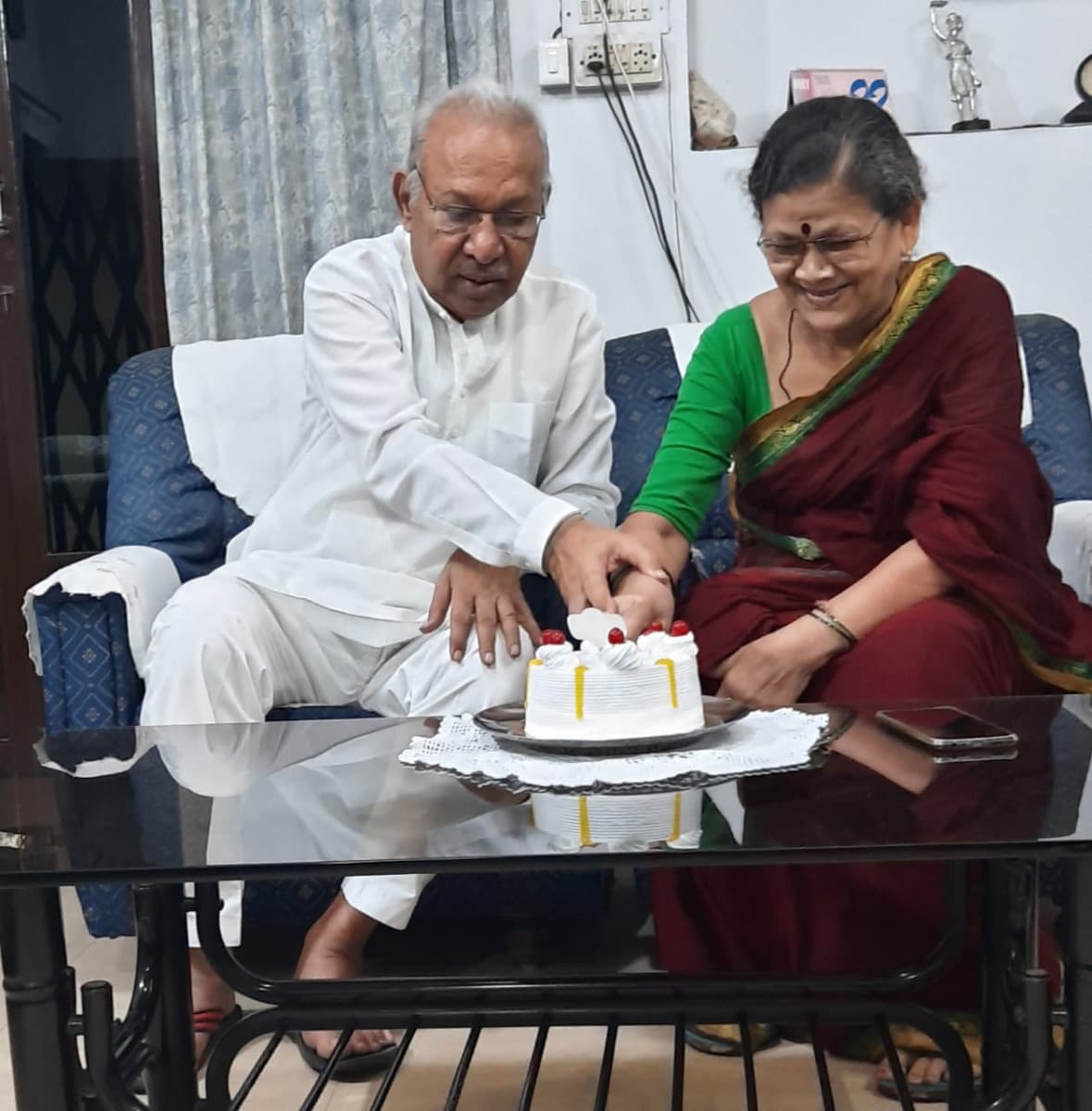Ghanshyam Sonkusare served in the Maharastra State Mining Corporation, a Government of Maharashtra undertaking for 30 years and retired as a mine manager in 2005. But immediately after retirement, he joined a company in the private sector, where he worked for the next 12 years. Thus, in actual terms, he retired from work life in 2017 only.
Sonkusare’s life was busy until his children, a son and daughter, went to college and then settled down while he was still working. Thus, he was left with no big responsibility to fulfil after his retirement.
His son works in a multinational company and lives in the US, while his daughter lives in Bhandara, the same city her parents reside in, and takes care of them whenever required. Now living with his wife, the 77-year-old septuagenarian likes to lead a simple life.
Reading books has been his hobby for long, and he now devotes much of his spare time to it. Now, his daily routine involves reading three newspapers and magazines, including those related to health, of which he has a vast collection to boast of.
He says, “I love reading a variety of papers and magazines. I have a sufficient collection on the topic of health.”
He reminisces, “When my son was in Class IV, my understanding was that he should get a good grasp of English. So, I started subscribing to Hitavada, a Nagpur-based newspaper, so that his understanding of the language improves.”
But soon enough, Sonkusare developed a liking for the newspaper and subscribes to it even today.
Money Matters
Sonkusare says he did not plan his retirement, but things went smoothly because of his disciplined attitude towards life, whether it was about money or other matters. He says, “As a matter of fact, I had no planning. My children got married while I was still in service, and my house was also ready around that time”.
He invested the amount he received on his retirement in post office schemes and bank fixed deposits (FDs) from which he gets a monthly income now. His pension, which comes from the Employees’ Provident Fund (EPF) corpus is very nominal and cannot serve him. So, he has invested some money in a scheme with the Maharashtra government and gets some monthly income from there as well.
He says he never fell ill and thus, felt no need to get a health insurance. He has also never taken any insurance, and has no investment in mutual funds, stocks, and real estate. In case of emergency, he says can depend on his son, but that will be only in the extreme of circumstances. He says his savings are enough to take care of his or his wife’s healthcare needs.
He fondly remembers receiving several job offers from private companies while still at his work with the public sector undertaking with the Government of Maharashtra and eventually joined one within a month of his retirement.
“I got a chance to work in the private sector soon after my retirement. That proved to be an additional support. So, for 12 years until I left my second job, I was not worried about my money and savings, because my savings were intact, and I was getting more than my expenses. I even saved from that salary and used it for constructing my house.”
Conservative And Steady
Sonkusare prefers doing transactions in cash and feels ATMs are easy to use for regular cash needs, and a cheque for other requirements. He has never used credit cards and does not want to try them either. He says his needs are simple, and there is no need for debt, even if it is in the form of a credit card. Given his age, he also avoids digital transactions because he does not understand them, and his needs are anyway fulfilled with the modes he is habitual to use.
As he continued working actively for 12 years after retirement, he says, he was able to build the house for generating passive income in the form of rent. Now, he earns some rental income, which along with the interest from his savings, are sufficient to take care of his and his wife and allow them to live the life as they want.
He admits that he inherited the habit of saving from his parents, which helped him keep his family’s expenses in check and never outgrow his income.
“My wife and I come from a conservative background. We have never wasted a penny on unplanned and unnecessary things. So, our savings remained intact and kept on building up. I never had to face any financial issues, but we also never lived lavishly. Our habits since childhood are such that we cannot spend money unnecessarily,” he says.
Financial Institutions: Relationships, Proximity To House, And Return On Investment
Considering his age, he discontinued his account in a far-off co-operative bank recently and reduced his portfolio in the post office because of the eternal queues. Now, he prefers going to his nearby bank.
For him, three things are important for choosing a financial institution: relationship, proximity to his house, and return on investment.
Even at 77, he takes care of his finances himself and considers no one as his ‘go-to person’ for financial needs. He say, “If the issue is related to the bank, I approach the bank, while for other institutions, I talk to those people. There is no need to do investment through somebody else. I can handle things by myself”.
Living independently, he is happy and content with whatever he has: health, finances, and relations.
Quoting TGL Iyer, Sonkusare says, “Four things in life are important: family, health, money, and work. Balance them well and you will be happy. Now, the work part is not valid for me, I am balancing the rest of the three and I am happy.”




